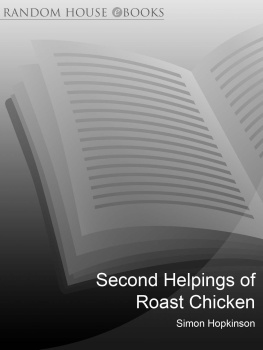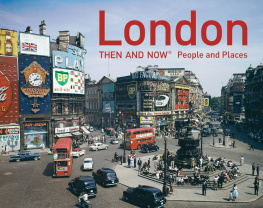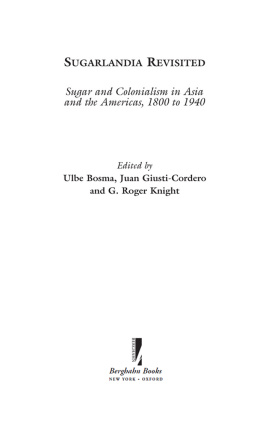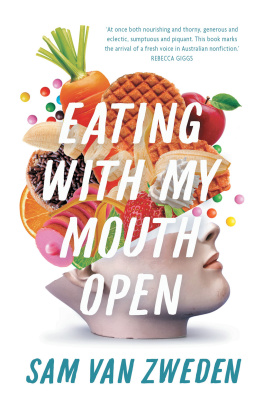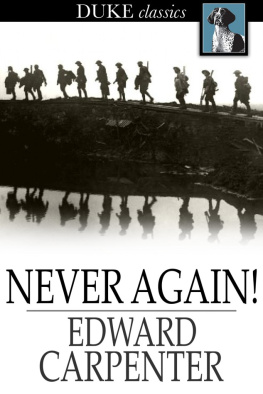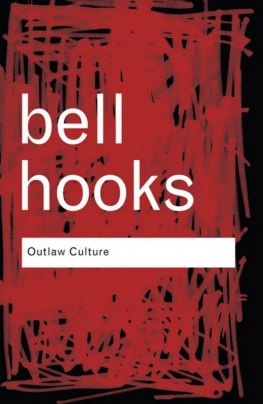Table of Contents
Guide
I am deeply grateful to the Interactivity Foundation (IF) for its commitment to creating platforms for generating new possibilities for public policy. IFs vice president, Jeff Prudhomme, suggested The Future of the Arts & Society as the topic for my first project as an IF fellow, which planted the seeds for this book. Thanks to IF trustees: Jack Byrd, Adolf Gundersen, Alan Freitag, Larry Jackley, Joe Powell, Allison R. Brown, and IFs founder, the late Jay Julius Stern. And to my fellow IF fellows: Dennis Boyer, Pete Shively, Mark Notturno, Ieva Notturno, Sue Goodnea Lea, Shannon Wheatley Harmanall gave crucial feedback on drafts of the initial arts policy project.
Julie Enszer, thank you for seeing something in my original IF Arts & Society project, and believing that there were some conceptual possibilities that could be developed into a narrative for The New Press. Ruel Johnson and Bernadette Persaud, thank you for your excellence, and for personifying art in action, culture in defiance. My cousin Carlos Benn organized and facilitated IF Arts & Society discussions in Guyana and helped with music and interview transcriptions. Thanks to Vidyaratha Kissoon, Sherlina Nageer, Alicia Martin, Zitronie George, Zitman George, Calvin Benn, Kimberly Benn, Priya Singh, Maureen Marks-Mendosa, Akima McPherson, Syeada Manbodh, Ronald Gordon, Sinah Kloss, Bibi Nariefa Abrahim, Ryan Ramcharran, Muniram Deonaraine, who all are dreaming of and working for a better Guyana.
Thanks to the Jamaican critic Annie Paul for telling me about Ruel and proving we are not all wasting our time on Twitter. Paul Gilroy pointed me to the Artist & Empire exhibit at the Tate in London. And thanks to my Guyanese diaspora massive, whose work, connections, and conversations informed and inspired me: Grace Aneiza Ali, Hew Locke, Oonya Kempadoo, Vibert and Pat Cambridge, John R. Rickford, Walter Edwards, Nigel Westmaas, Gaiutra Bahadur, Gabrielle Smith-Barrow, Joy Ford Austin, Rev. Mother Roxanne Hunte.
Thanks for your eyes: Deb Heard, Russell R. Rickford, Delece Smith-Barrow, Derek Andrews, E. Ethelbert Miller, Reggie Royston, Teresa Wiltz, Natalie Y. Moore. Thanks W. Paul Coates for insights into the triangular trade of black publishing. London curator Dr. Michael McMillan shared archival research he used to produce the groundbreaking No Colour Bar exhibit at the Guildhall. Thanks to the Women Writers of Color brunch group for quarterly affirmation. Thanks to my colleagues at Howard Universitys Communication, Culture and Media Studies (CCMS) department and the entire School of Communications including Mark E. Beckford for the Jamaica connections. My uncle Ovid Benns colorful stories of his life mining gold inspired me to begin traveling to Guyana as an adult. My husband, Rudy McGann, and kids, Maverick and Maven, let me drag them along for the ride.
I save my parents for last even though thank you is not enough. To my dad, Terrence Hopkinson, the arts and expression had nothing to do with art or politics, fame or fortune; they were simply water or air. He was a dreamer throughout his entire life but did not live long enough to see this book in print. Finally, thanks to my mother, Serena Hopkinson, my inspiration in all things. Mum, thanks for riding shotgun on this: the line edits, gut checks, and holding me up on this (often literally) rocky ride. Mama, we made it!!! Ill send you the bill.
About the Author
A former staff writer, editor, and culture critic at the Washington Post and The Root, Natalie Hopkinson is an assistant professor in Howard Universitys graduate program in communication, culture, and media studies and a fellow at the Interactivity Foundation. The author of two critically acclaimed books, Go-Go Live and Deconstructing Tyrone (with Natalie Y. Moore), Hopkinson lives in Washington, D.C.
Celebrating 25 Years of Independent Publishing
Thank you for reading this book published by The New Press. The New Press is a nonprofit, public interest publisher celebrating its twenty-fifth anniversary in 2017. New Press books and authors play a crucial role in sparking conversations about the key political and social issues of our day.
We hope you enjoyed this book and that you will stay in touch with The New Press. Here are a few ways to stay up-to-date with our books, events, and the issues we cover:
Sign up at www.thenewpress.com/subscribe to receive updates on New Press authors and issues and to be notified about local events
Like us on Facebook: www.facebook.com/newpressbooks
Follow us on Twitter: www.twitter.com/thenewpress
Please consider buying New Press books for yourself; for friends and family; or to donate to schools, libraries, community centers, prison libraries, and other organizations involved with the issues our authors write about.
The New Press is a 501(c)(3) nonprofit organization. You can also support our work with a tax-deductible gift by visiting www.thenewpress.com/donate.
I want to play a new melody. I want to find a new colour. And I want to proclaim like Schopenhaeur. The world is my Idea.
Bernadette Persaud
Its like any other carnival. Mashramani, or Mash, is a giant street party. These libidinous, color-soaked pageants happen all around the world. In Guyanas version, a rainbow blur of people, costumes, floats, sound systems, steel pan, chutney, soca and calypso musicians compete for prizes, attention, respect. Long after the sober hours when I began walking Georgetowns parade route in 2015, it would climax into a boozy orgy of wining down and back-balling deep into the night.
Guyana bills itself as the Land of Six Peoples, and Mashramani puts them all on display. It is not a scene you expect to find on the northern edge of South America: Think Accra meets Mumbaithrough the lens of the indigenous Amerindian. Most of Guyanas nearly eight hundred thousand people are squeezed onto a tiny coastal strip carved from the dense rainforest adjacent to Venezuela, Suriname, and Brazil. The language is English by way of Great Britain. Much like its cuisine, its culture is filled with loud and pungent flavors that dont always mix well: roti and curry from India; metemgee stew from Africa; garlic pork from Portugal; pepper pot from the Amerindians; chow mein from China. Mash parade and festival is like cook-up rice, a jambalaya that is uniquely Guyanese.
The festival is a great time. But as I pass cheery floats on streets bearing English and Dutch names lined with aged but stately wooden homes, I feel a sense of dread. A national election is coming up, and everyone knows that in Guyana, elections mostly mean trouble.
What most people here dont know yet is that the stakes for this election are even higher than usual. ExxonMobil discovered a $200 billion (USD) cache of oil and gas off Guyanas Essequibo Coast. This find could be more lucrative than the American companys interests in Russia. Control of Guyanas government could yield a higher bounty than at any point in the countrys history. It would turn out to be a murderous election campaign.
As in many parts of the world, power shifts and violence have always gone hand in hand here. Guyana was once the British Empires only foothold in South America. The Brits wrestled it away from the Dutch, French, and Spanish in the European scramble for control of the seas and world markets. Known then as British Guiana (land of many waters), its lush rainforest climate once produced some of the most profitable sugarcane crops in the world. Its strategic access to the Atlantic and colonial investments made it a shiny bauble on the map of Empire.
Guyana is one of several West Indian nations currently seeking reparations from Europe for Native American genocide, slavery, and the enduring effect of the sugar trade. Calculating Great Britains debt to black workers may be more straightforward than in the United States. Soon after the abolition of slavery in 1833, British Parliament paid out 20 million to compensate slave owners all across the Empirebut never the actual slaves. The infusion of cash to slaveholders vested an outdated, inefficient plantation system, which served as a stimulus package that helped to modernize Great Britain. Until the 2009 banking crisis, it was the biggest bailout in British history, according to the Barbadian historian Sir Hilary Beckles.
Next page


